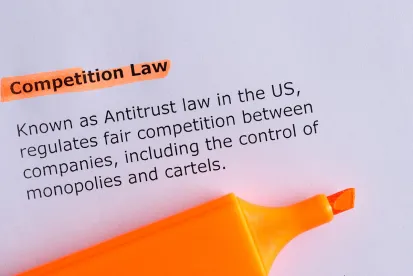On March 16, 2022, China’s Supreme People’s Court issued the Judicial Interpretation (JI) of Anti-Unfair Competition Law (UCL) (最高人民法院关于适用〈中华人民共和国反不正当竞争法〉若干问题的解释), which will go into effect March 20, 2022. The Anti-Unfair Competition Law has been used effectively by foreigners in trademark and trade dress cases when the foreigners’ trademarks have not been registered (or in addition to a trademark infringement claim for a registered trademark).
Per a press conference held by the Third Civil Division of the Supreme People’s Court, one of the main considerations in this JI is the inconsistent determination of new types of unfair competition. For example, Article 3 of the JI explains that unfair competition based on violation of business ethics not everyday ethical standards but standards generally followed and recognized in specific business fields. The JI also stipulates that the people’s court shall, in light of the specific circumstances of the case, comprehensively consider industry rules or business practices, the subjective state of the operator, the choice of the counterparty in the transaction, the impact on the rights and interests of consumers, the order of market competition, and social and public interests, etc.
Article 3 reads,
A code of conduct that is generally followed and recognized in specific commercial fields can be recognized by the people’s court as “business ethics” as stipulated in Article 2 of the Anti-Unfair Competition Law.
The people’s court shall, in light of the specific circumstances of the case, comprehensively consider factors such as industry rules or business practices, the operator’s subjective state, the transaction counterparty’s willingness to choose, the impact on consumers’ rights and interests, market competition order, and social and public interests, and judge the operator in accordance with the law. Whether it violates business ethics.
When determining whether a business operator has violated business ethics, the people’s court may refer to the practice norms, technical norms, self-discipline conventions, etc. formulated by the competent industry authorities, industry associations or self-discipline organizations.
Article 2 of the UCL reads, in part,
Businesses shall, in their production and distribution activities, adhere to the free will, equality, fairness, and good faith principles, and abide by laws and business ethics.
Article 5 of the JI reads,
If the label stipulated in Article 6 of the Anti-Unfair Competition Law falls under any of the following circumstances, the people’s court shall determine that it does not have distinctive features that distinguish the source of the commodity:
(1) The common name, graphics and model of the commodity;
(2) Marks that only directly indicate the quality, main raw materials, functions, uses, weight, quantity and other characteristics of the commodities;
(3) Shapes that arise solely from the nature of the commodity itself, the shape of the commodity that is necessary to obtain technical effects, and the shape that gives the commodity substantial value;
(4) Other signs lacking distinctive features.
Where the labels specified in Items 1, 2, and 4 of the preceding paragraph have acquired distinctive features through use and have a certain market reputation, and the parties request protection in accordance with Article 6 of the Anti-Unfair Competition Law, the people’s court shall support it.
For those in the retail space, Article 8 of the JI provides protection,
In case the decoration of the business place, the pattern of business tools, or the clothes of business staff of a business operator, etc. constitutes an overall business image with a unique style, the people’s court may affirm it as the “decoration” prescribed in Item 1 of Article 6 of the Anti-unfair Competition Law.
Further, foreigner’s overseas names used in China might be protected in the JI without trademark registration per Article 9.
The enterprise name legally registered by the market entity registration management department and the overseas enterprise name used for commercial use within the territory of China may be recognized by the people’s court as the “enterprise name” stipulated in Item 2 of Article 6 of the Anti-Unfair Competition Law.
The full text of the JI is available here (Chinese only). The full text of the related press conference is available here (Chinese only).



 />i
/>i
